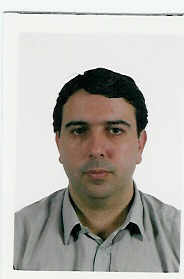| Pages in topic: < [1 2] | Consecutive or simultaneous - different brains? Thread poster: Berni Armstrong
|
|---|
| With or without scripts????? | Mar 26, 2004 |
If you are not given scripts it is a gift and just a question of training if you get scripts.
| | | | sarahl (X)
Local time: 06:44
English to French
+ ...
| Training, all the way! | Mar 26, 2004 |
You definitely need training to do simultaneous and/or consecutive. And you probably need to have the right type of brain (no pun intended) for that.
| | | | Edith Kelly 
Switzerland
Local time: 15:44
Member
German to English
+ ...
| If you want to be a professional conference interpreter | Mar 28, 2004 |
you should have proper training (it's not enough to have tried it once and twice), you must have loads of practice, you must be willing to prepare properly, you must be very disciplined, there are many thing to remember ... but you do not need two different brains, both simultaneous and consecutive interpreting use the same brain but different *technique*, and that's the salient point.
| | | | | not different brains, but several different parts of one brain | Mar 28, 2004 |
After more than 4000 working-days of simultaneous, my sunjective 2 cents:
SIM-INT has 5 different main processes (speech recognition, SL- segmentation+editing, transfer to TL, reordering TL, vocalizing) running at the same time, each one processing different speech segments. Moreover, since the speed of each phase is continuously changing, FIFO-type temporary buffer memories have to be managed. All routines and subroutines, rules and knowledge bases can be defined and logically mode... See more After more than 4000 working-days of simultaneous, my sunjective 2 cents:
SIM-INT has 5 different main processes (speech recognition, SL- segmentation+editing, transfer to TL, reordering TL, vocalizing) running at the same time, each one processing different speech segments. Moreover, since the speed of each phase is continuously changing, FIFO-type temporary buffer memories have to be managed. All routines and subroutines, rules and knowledge bases can be defined and logically modeled.
I believe that every human brain has the potential ability to handle such multiprocessing tasks, but this ability is generally not developed, since there are very few human activities requiring a similar "juggling".
Training and practice are essential, and many may feel that it is a mountain too steep to climb. ▲ Collapse
| | | | | Pages in topic: < [1 2] | To report site rules violations or get help, contact a site moderator: You can also contact site staff by submitting a support request » Consecutive or simultaneous - different brains? | Wordfast Pro | Translation Memory Software for Any Platform
Exclusive discount for ProZ.com users!
Save over 13% when purchasing Wordfast Pro through ProZ.com. Wordfast is the world's #1 provider of platform-independent Translation Memory software. Consistently ranked the most user-friendly and highest value
Buy now! » |
| | CafeTran Espresso | You've never met a CAT tool this clever!
Translate faster & easier, using a sophisticated CAT tool built by a translator / developer.
Accept jobs from clients who use Trados, MemoQ, Wordfast & major CAT tools.
Download and start using CafeTran Espresso -- for free
Buy now! » |
|
| | | | X Sign in to your ProZ.com account... | | | | | |







